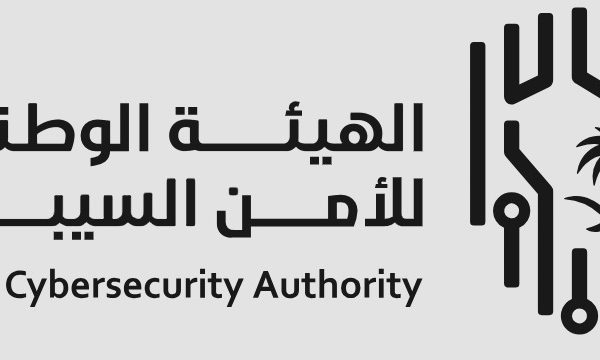Data Quality Excellence: A Critical Success Factor for Saudi Organizations in the Digital Economy
In the era of Saudi Arabia’s rapid digital transformation, data quality has emerged as a cornerstone of business success. As organizations across the Kingdom embrace data-driven decision-making to align with Vision 2030 initiatives, the need for high-quality, reliable data has never been more critical. At TCG, we’ve observed how data quality directly impacts operational efficiency, regulatory compliance, and strategic planning for organizations operating in Saudi Arabia.
The Strategic Importance of Data Quality in Saudi Arabia
The National Data Management Office (NDMO) has established a comprehensive data governance framework that emphasize the importance of data quality. These regulations reflect Saudi Arabia’s commitment to building a robust digital economy while protecting national interests. Organizations must now maintain high data quality standards not just for operational efficiency, but as a fundamental compliance requirement.
Understanding the Business Impact of Poor Data Quality
The cost of poor data quality extends far beyond immediate operational inefficiencies. Saudi organizations face unique challenges when dealing with data quality issues:
Studies indicate that poor data quality costs organizations an average of 15-25% of their operating revenue. For Saudi enterprises engaging in large-scale digital transformation projects, these costs can be even more significant.
With the Kingdom’s push toward smart cities and digital government services, the reliability of data has become crucial. Inaccurate or incomplete data can lead to flawed strategic decisions, potentially impacting national development goals.
Saudi consumers increasingly expect personalized digital experiences. Poor data quality can lead to service disruptions, incorrect personalization, and damaged customer relationships.
NDMO Compliance and Data Quality Dimensions
The NDMO’s regulatory framework establishes specific dimensions for data quality management:
- Completeness: This dimension measures the extent to which all required data is available for intended use. Ensuring completeness helps in avoiding gaps that could lead to poor decision-making due to incomplete information.
- Uniqueness: It is vital to ascertain that data records are distinct without duplicates. High uniqueness prevents redundancy and potential confusion in data handling processes.
- Timeliness: This aspect evaluates whether data is up-to-date and available exactly when needed. Timely data is crucial for responsive decision-making and maintaining operational efficiency.
- Validity: This measures if data records adhere to specified formats, types, and ranges set within your data systems. Validity ensures that the data conforms to the necessary standards, facilitating reliable data integration and analysis.
- Accuracy: Accuracy is about how well data reflects reality. Accurate data is essential for credible reporting and analytics, impacting strategic and operational decisions significantly.
- Consistency: This dimension checks whether data is consistent across various sources. Consistency is key to reliable analytics and reporting, ensuring that insights drawn from the data are based on uniform and coherent information.
We can support organizations in establishing clear rules based on these dimensions to ensure data quality is measured and enhanced effectively. Focusing on these criteria can guarantee that data is robust, reliable, and suitable for its intended use, thereby improving decision-making processes and operational efficiencies.

Building a Data Quality Framework for Saudi Organizations
Assessment and Planning
Organizations must begin with a comprehensive assessment of their current data quality levels. This includes evaluating existing data against NDMO standards and identifying gaps in current data management practices.
Implementation Strategy
A successful data quality program must align with both business objectives and regulatory requirements. This includes:
- Establishing data quality metrics and KPIs
- Implementing automated data validation processes
- Developing clear data governance policies
- Creating data quality monitoring systems
Cultural Integration
Success in data quality initiatives requires a cultural shift. Saudi organizations must foster a data-quality-conscious culture that aligns with local business practices and organizational structures.
Technology and Tools in Data Quality Management
Modern data quality management requires sophisticated tools and technologies. Saudi organizations should consider solutions that:
- Provide automated data validation and cleansing
- Offer real-time monitoring capabilities
- Support Arabic language processing
- Comply with local data sovereignty requirements
- Integrate with existing systems and processes
Measuring Success in Data Quality
Organizations should establish clear metrics for measuring data quality success. These metrics can include:
- Reduction in error rates and data inconsistencies
- Improved operational efficiency
- Enhanced regulatory compliance
- Better decision-making outcomes
- Increased customer satisfaction
The Path Forward
High quality data is not a one-time achievement but a continuous journey. Saudi organizations must view data quality as a strategic asset that requires ongoing investment and attention. The rewards of maintaining high data quality standards include improved operational efficiency, better decision-making capabilities, and enhanced competitive advantage in the digital economy, which can all have significant impacts on your bottom line.
Expert Guidance for Your Data Quality Journey
At TCG, we understand the unique challenges Saudi organizations face in maintaining high data quality standards while meeting regulatory requirements. Our expertise helps organizations develop and implement comprehensive data quality strategies that align with both business objectives and regulatory requirements.
As a premier data management consulting firm, we are dedicated to guiding Saudi organizations towards achieving the highest standards of data quality and governance. Our team blends global insights with a profound understanding of local regulatory frameworks and business environments, ensuring tailored solutions that drive success.












